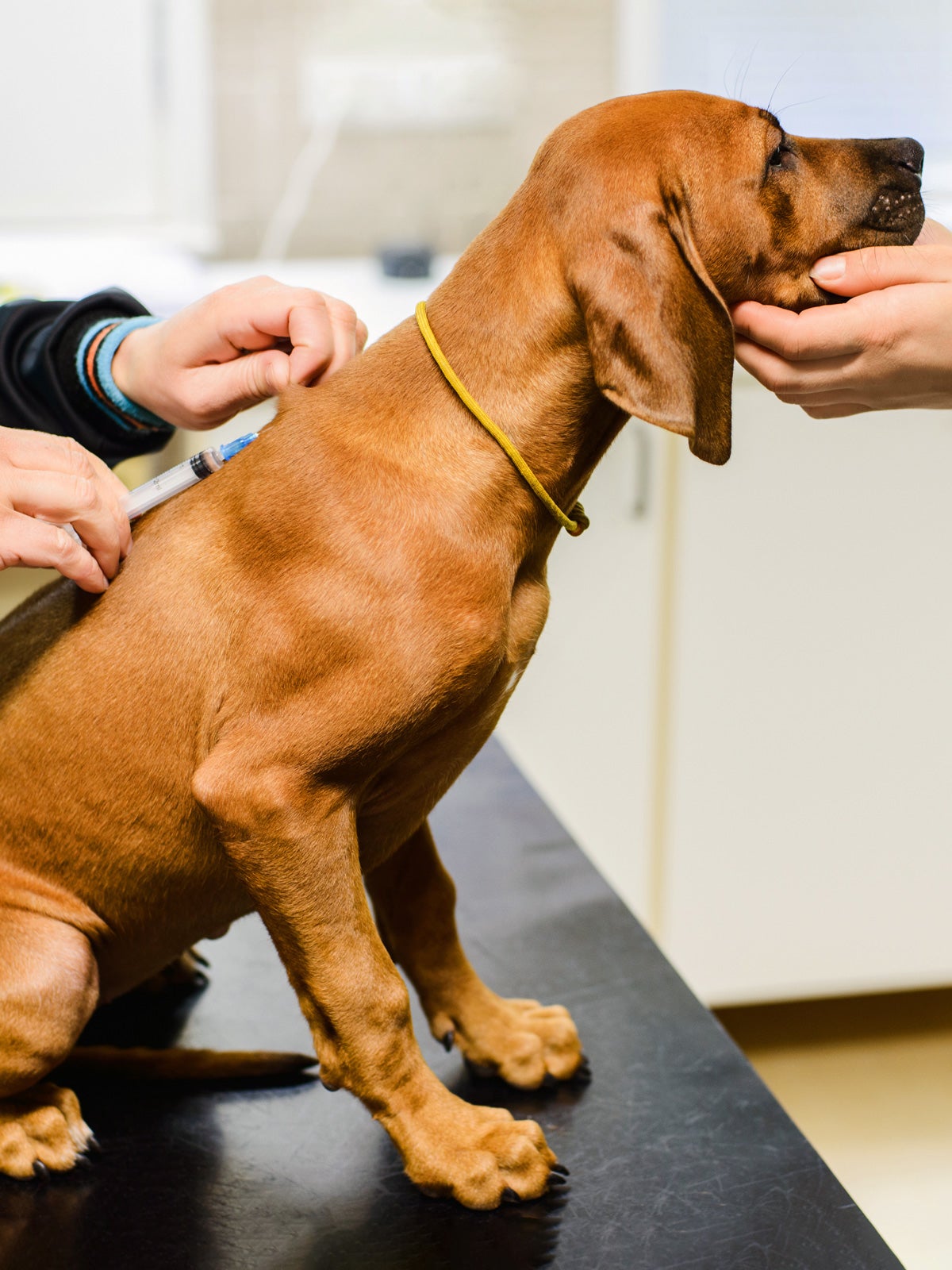
Research
Vaccine hesitancy spills over to pets
Rabies was an urgent public health threat in the U.S. a century ago; we can’t let it become one again.
The rabies shot is the most important canine vaccination for protecting human health, and yet growing numbers of pet owners are skeptical of it.
As academics who study vaccine hesitancy, we have documented how people’s attitudes toward COVID-19 vaccines have “spilled over” to others. Our latest study, published in Vaccine, finds that vaccine hesitancy is affecting pet vaccination, too.
In a nationally representative poll of 2,200 U.S. adults, we found that pet owners increasingly doubt the safety, efficacy, and importance of administering routine rabies vaccinations to their pets, and some pet owners may avoid vaccinating their pets altogether—concerns we call “canine vaccine hesitancy.”
Sign up for Harvard Public Health
Delivered to your inbox weekly.
Roughly half of the pet owners who responded to our survey exhibited some degree of hesitancy, saying they believed at least one or more of the following: Some dog vaccines lead to cognitive issues like autism; the negative side effects of dog vaccination outweigh the benefits; or most of the vaccines that dogs receive are not medically necessary. Dog owners were especially likely to hold these views if they also expressed skepticism about childhood vaccine safety.
We also find that canine vaccine hesitancy may translate to fewer vaccinated pets. The vaccine-hesitant dog owners in our sample were six percent more likely to have an unvaccinated dog—and 27 percent more likely to oppose rabies vaccine mandates.
Those mandates are a critical public health tool to ensure that rabies in humans remains vanishingly rare. In fact, there are more dogs in this country than children under 18.
Rabies was once one of medicine’s most feared diseases, and it still kills nearly 60,000 people every year globally, mostly in Africa and Asia where dogs are the main source of rabies transmission to humans. Although there are only between one and three human rabies cases reported in the U.S. in an average year, hundreds of thousands of people are bitten by wild animals or dogs suspected to have the disease. When that happens, aggressive prophylactic measures are necessary: People must immediately be given a series of shots to administer the rabies vaccine, which in combination with wound washing, prevents the disease from progressing in almost all cases. Then they must be tested and monitored. If symptoms appear, it’s too late: Rabies has a 99 percent mortality rate.
A century ago, rabies killed thousands of pets and farm animals and dozens of humans in the U.S., eventually leading to widespread rabies mandates across the country, although today’s mandates are inconsistent. Many states allow exemptions and enforcement remains difficult. Some Georgia lawmakers want to make rabies vaccinations optional for dogs and cats in the state, and Ohio doesn’t require rabies vaccines for dogs at all.
Loose mandates coupled with evidence that vaccine-hesitant dog owners may forego vaccinating their pets could pose a serious threat to both human and animal health. Widespread vaccine coverage is necessary to prevent or eliminate outbreaks of rabies. The World Health Organization recommends rabies vaccination as the most cost-effective strategy for preventing rabies disease in humans. Unvaccinated dogs who encounter rabid animals in the wild risk getting sick and potentially exposing humans to the virus. A CDC epidemiologist, Ryan Wallace, told NPR that widespread annual rabies vaccinations for dogs prevents 300 canine infections and 100 human rabies deaths every year.
Vaccine hesitancy “spillover” effects underscore the importance of restoring trust in human vaccine safety and efficacy. Public health campaigns tackling vaccine hesitancy would do well to consider dog owners in their messaging, and consider drops in pet vaccination, especially for rabies, an important bellwether for gauging public trust in vaccines.
Top image: olgagorovenko / iStock


